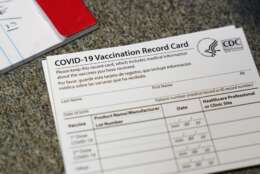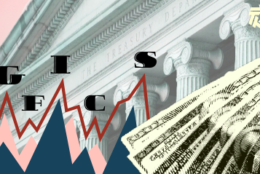Mike Causey
-
Is the vaccine mandate for federal employees causing a divide within your agency?
October 26, 2021 -
No, there hasn't been much progress on several pressing issues, including a need to secure full-year agency funding and avert (another) government shutdown, a deal with the debt ceiling (again) and a whole host of other legislative work.
October 25, 2021 -
Retirement can be a lot less fun if your teeth fall out and you can't bite into an apple.
October 22, 2021 -
The Federal Employees Retirement System (FERS) requires some-to-considerable thought and work from those who want to maximize their total retirement benefits.
October 21, 2021 -
When it comes to the smartest investors in the nation, which group of people or professions would you pick?
October 20, 2021 -
How are the feds you know discussing the vaccine mandate?
October 19, 2021 -
When choosing when to retire, employees often fall into two groups, one federal benefits expert said. So where do you sit?
October 15, 2021 -
While certainly relief to Social Security recipients, that big adjustment is a sign of a scary economy.
October 15, 2021 -
A cost of living adjustment this size carries a double message. First, that inflation is back, and second, that not everybody will get the full increase. Some will even get nothing, meaning even more belt-tightening!
October 14, 2021 -
For the vast majority of feds still on the payroll, plus a growing number of those already retired under the newer Federal Employees Retirement System (FERS), big COLAs mean fiscal heartburn.
October 13, 2021 -
Will the vaccine mandate provide the push for thousands of workers to retire or quit either because they don’t want the shots or are reluctant to return to the office after 12-to-18 months of working at home?
October 12, 2021 -
Come Jan. 1, health insurance plans must treat emergency services performed out-of-network as if they were done in-network. The new rules apply to almost all major public and private health insurance plans, including the Federal Employees Health Benefits Program.
October 11, 2021 -
Yes, the details of the federal employee vaccine mandate are foggy, but maybe they have to be,
October 08, 2021 -
While the number of federal-military personnel participating in the federal 401k plan increased slightly between June and September, most account balances — at every level — were down slightly.
October 07, 2021 -
If your retirement nest egg is invested in the stock market you probably know that after a very long winning streak September was not too nice.
October 06, 2021














